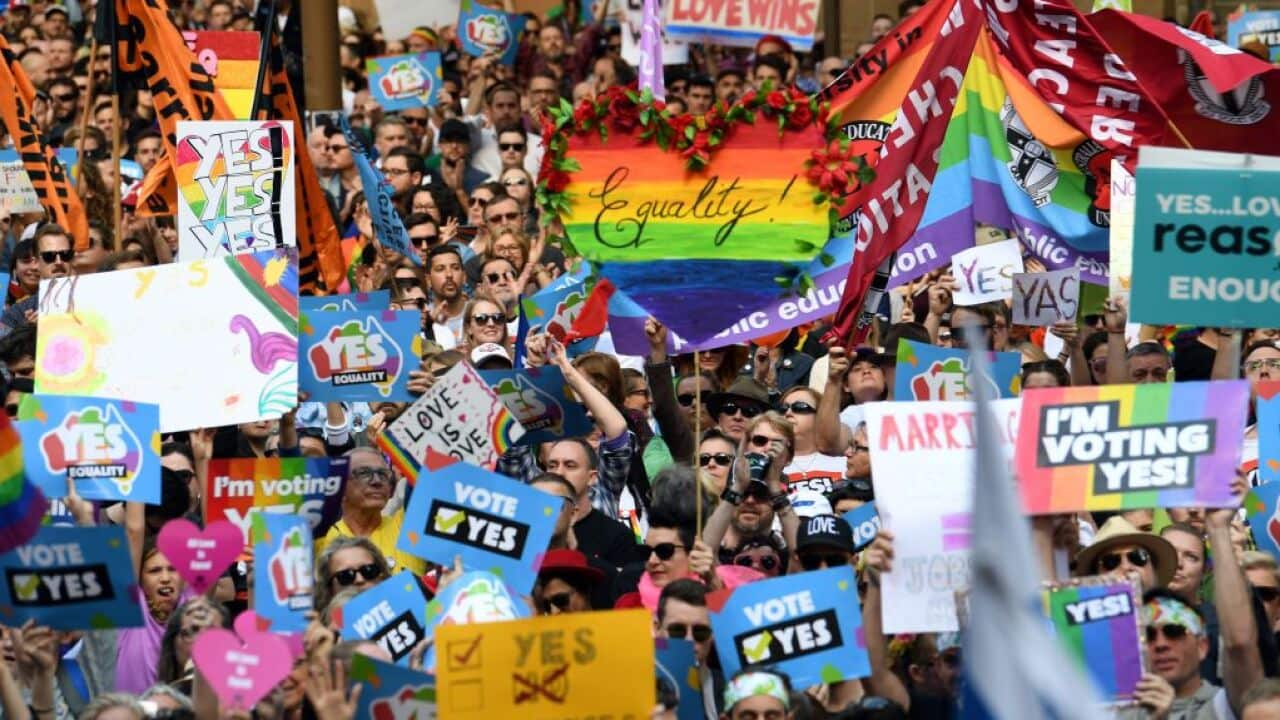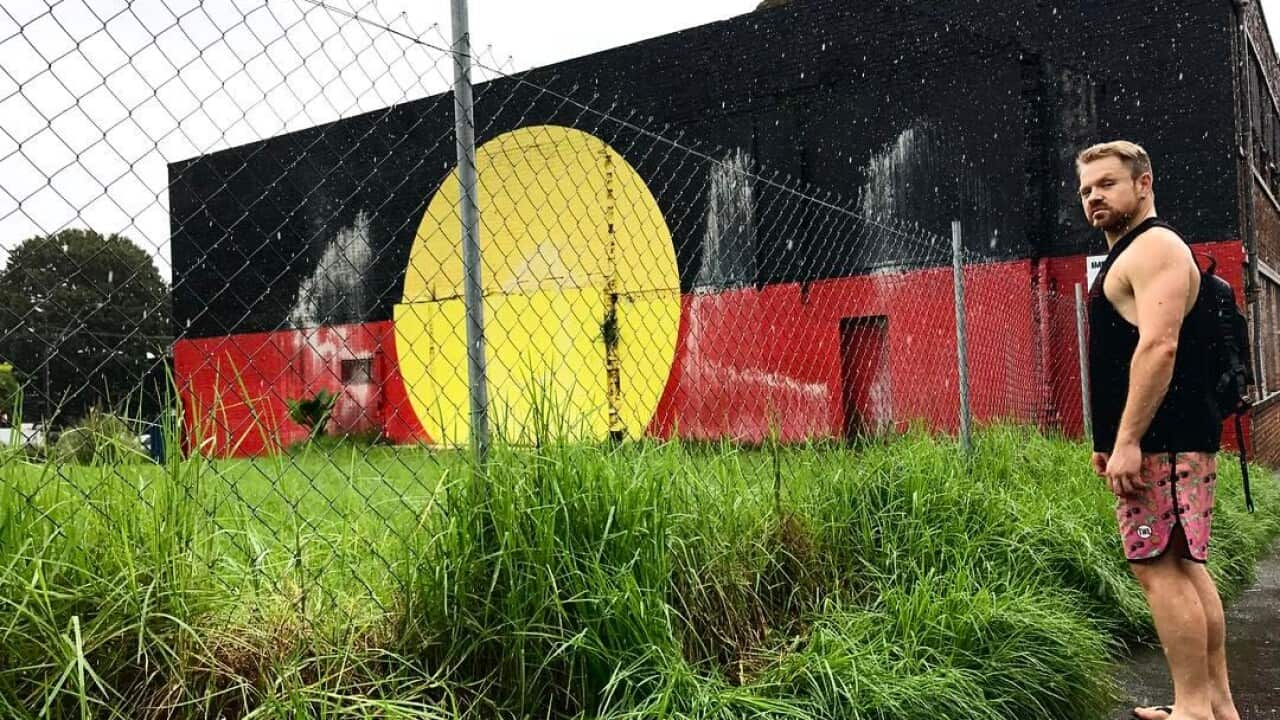Three weeks ago, on November 15, Paul Calcott was working from home with a colleague.
“We were supposed to be doing some work,” he laughs.
But Paul, along with most of the country, was distracted. He was waiting for 10am to come around.
The moment hit almost five minutes past the hour, when David Kalisch, the Australian Bureau of Statistic’s Chief Statistician, revealed that an overwhelming majority of Australians had voted to legalise same-sex marriage.
“And then he said, ‘so, will you marry me?”
“I was surprised by how overwhelmed I was! I really got quite emotional about it,” Paul recalls.
Before the shock subsided, Paul’s phone rang. It was his partner Rob. As they shared their excitement and disbelief, every word revealed how much this moment meant to them.
“And then he said, ‘so, will you marry me?”
“I didn’t know what to do! I started laughing,” Paul says.
“I still hadn’t answered him, so I said, ‘well, yes!’”
Similar scenes have since played out across the country. Just this week, Liberal MP Tim Wilson proposed to his long-term partner in the House of Representatives.
With news today that same-sex marriage legislation has passed the Lower House without amendments, planning for those weddings can now go ahead unimpeded.
The Governor-General is expected to give the bill Royal Assent within the next week, and then an exact date of effect will be announced by the government. That date can be no later than 28 days after Royal Assent.

Postal vote results. Source: NITV News
‘We had just accepted it wouldn’t happen’
For Paul Calcott, who has been with his partner for 20 years, it’s a strange feeling.
“It’s something we had just accepted wouldn’t happen,” he says.
Paul was just a teenager in 1978, when many from the LGBTQI community marched the streets of Sydney demanding to be heard, only to be met with violence and more than 50 arrests.
“I saw that, and I thought ‘well that’s what happens if you come out,” Paul says.
“To think that the first Mardi Gras was a protest march, where people were arrested and lost their jobs… to seeing the police actually marching with [the] community at Mardi Gras, to now being accepted and able to get married: that’s a lot in my lifetime.”
Paul sits on the board of the peak body for Indigenous LGBTQI suicide prevention, Black Rainbow. He says the impact of this legislation will go beyond a celebration.
“To say you can get married… it’s like saying, you know, ‘now your relationship is as valid as anyone else’s.”
RELATED ARTICLE

Black LGBTI reacts to overwhelming 'YES' vote
Spreading the love
Paul says while the debate on marriage equality is over, his work isn't.
In order to raise the visibility of the Aboriginal and Torres Strait Islander LGBQTI community, Paul is part of a Black Rainbow initiative called Preventing Suicide Through a Contagion of Love.
The organisation is currently offering micro-grants of up to $300 to LGBQTI identifying members of the Aboriginal and Torres Strait Islander community to host and promote local events that are social and community focused.
In an Op-Ed published on this week, Black Rainbow founder Dameyon Bonson wrote, "billions of dollars are spent in Indigenous mental health, suicide prevention and health and none of it directed specifically towards Indigenous LGBQTI people."
They say their aim is simple: to ensure LGBQTI communities feel loved and supported.












